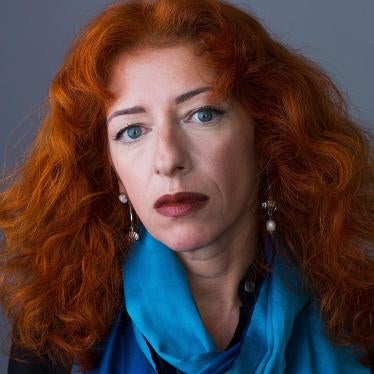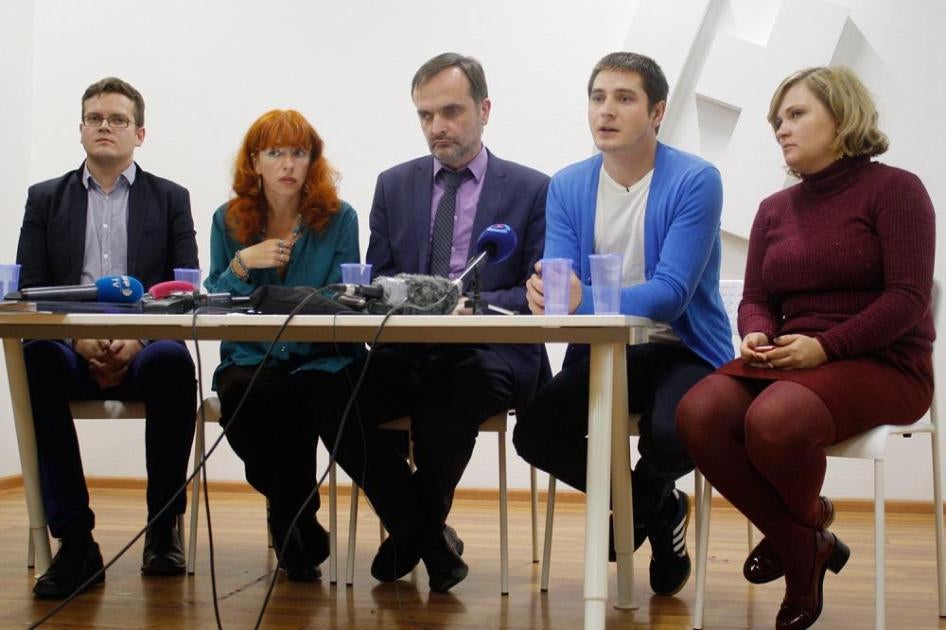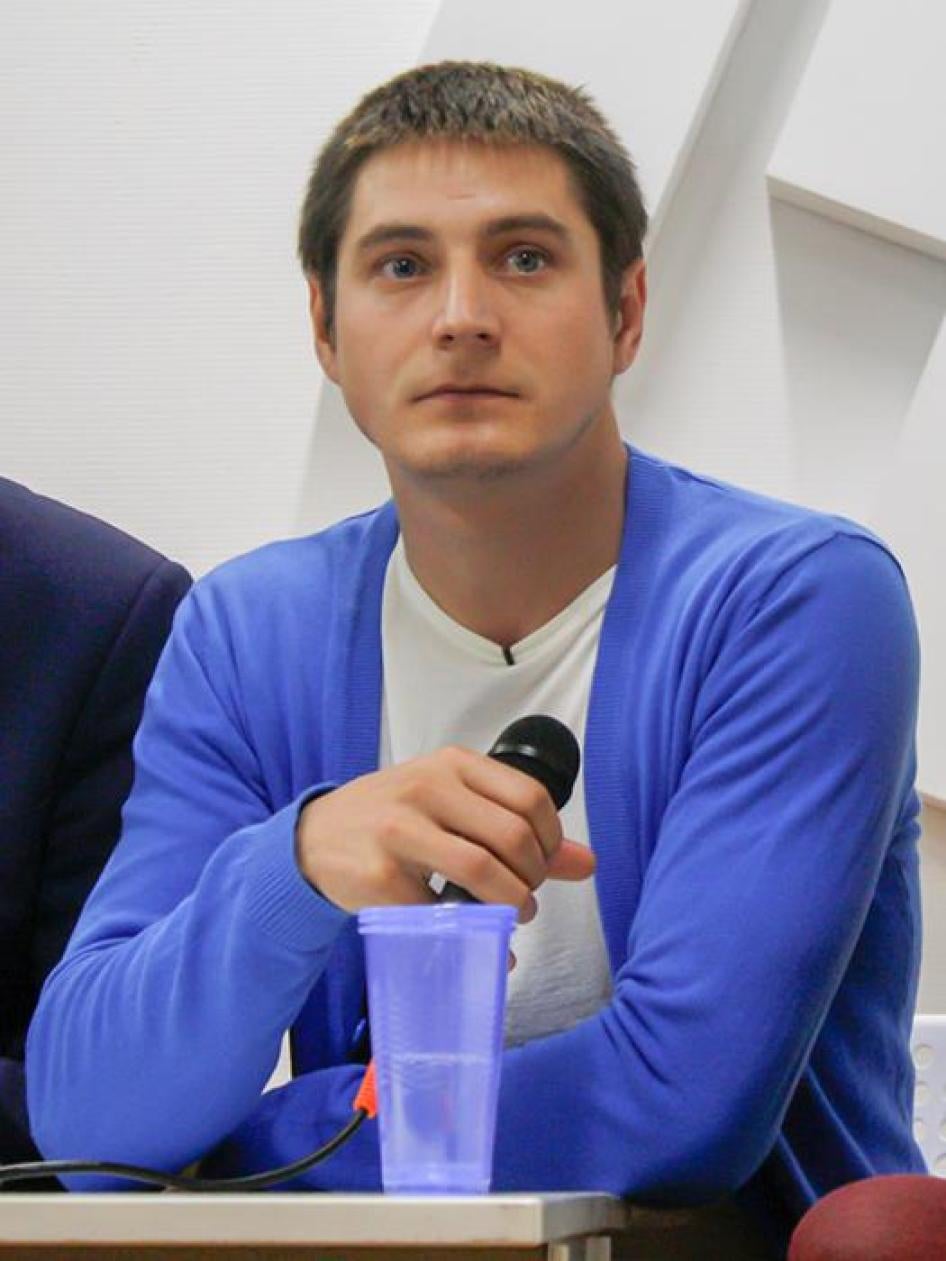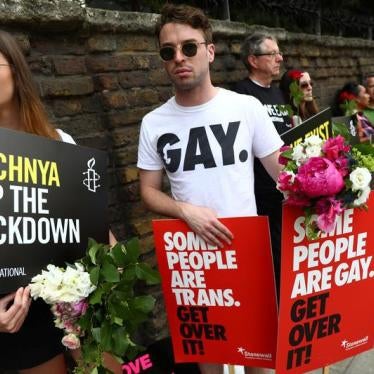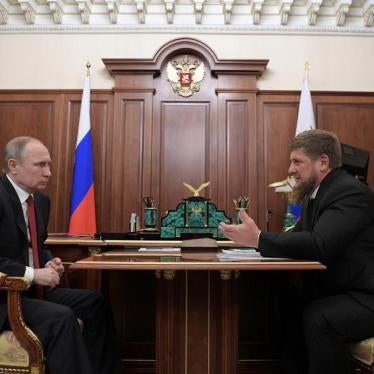Yesterday, I ran a news-conference at which a man described how he was rounded up and tortured during Chechnya’s anti-gay purge in the spring. One of dozens of victims of this large-scale “cleansing” operation against gay people in Chechnya, Maxim Lapunov, 30, is the only one who has dared to file an official complaint with the Russian authorities and then talk to the media, without hiding his face or real name. He is also the only non-Chechen local security officials had targeted because of his homosexuality.
Lapunov did not expect to survive. His legs, buttocks, ribs and back were all black and blue. When his torturers finally released him, he “could barely crawl”. Six months later, he still wakes up in a cold sweat from the piercing screams of other detainees in his nightmares.
Facing a broad international outcry over the purge, the Kremlin gradually moved from shrugging off the allegations to pledging to conduct an effective investigation and opening a federal-level inquest. However, high-level officials repeatedly flagged that not a single victim had stepped forward. They did not acknowledge the depth and legitimacy of victims’ fears about coming forward but rather used this to justify the investigation’s apparent lack of progress.
Like the rest of the victims, Lapunov had every reason to fear retaliation by Chechen authorities, especially as the security officials who released him warned him to keep silent. But, as a Russian man from Siberia who had gone to Chechnya for work, Lapunov did not have to face what every Chechen man caught in the purge feared: being targeted by his own relatives for “tarnishing family honour” or exposing his entire family to overwhelming stigma because of his homosexuality. It took Lapunov months to reach a decision, but ultimately he felt that no matter the risk of retaliation, he could not live without justice.
In August, with the help of Russian human rights lawyers, Lapunov met with the federal ombudsperson, Tatiana Moskalkova, who in May had stressed her readiness to speak to “anyone who wants protection and official investigation.”On 22 September, Moskalkova forwarded his statement to federal investigative authorities. Lapunov and his lawyers had several meetings with investigators and asked to travel to Chechnya with the investigative team to examine sites and interview alleged suspects and witnesses. Lapunov kept it quiet from the media, giving the investigation ample time to take some meaningful steps. But after almost a month, nothing happened. He requested government protection, but the investigation has made no arrangements to accommodate his request. Lapunov and his lawyers believe that media exposure is their only hope to get the system to budge.
Since Lapunov started his quest for justice, he has received threats from Chechnya. Nevertheless, he perseveres. “We all have rights…,” he said, “If we just let it be [in Chechnya], it’ll start happening across the country… and we’ll never know whose son or daughter will be taken next.”
Lapunov needs justice. The Russian authorities have no excuse not to deliver it to him and to the rest of the victims of Chechnya’s anti-gay purge.
